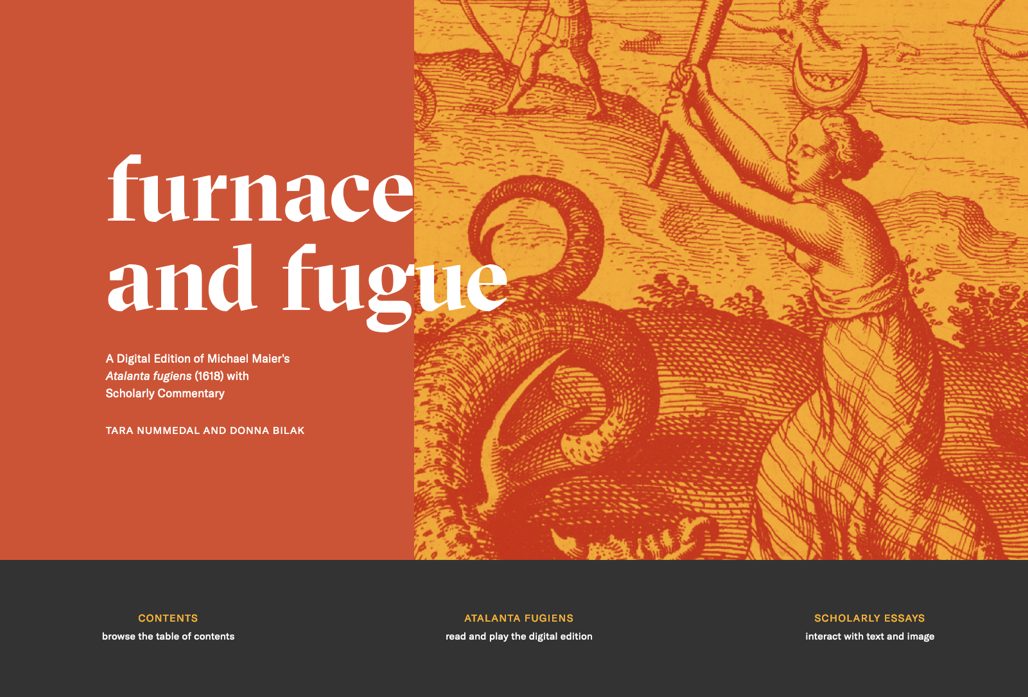Tara Nummedal and her colleague Donna Bilak completed their co-edited exploration of the German physician Michael Maier’s musical, alchemical emblem book, Atalanta fugiens (1618). A pilot project of Brown’s Mellon-funded Digital Scholarship Initiative, Furnace and Fugue: A Digital Edition of Michael Maier’s Atalanta fugiens, with Scholarly Commentary appeared in July 2020 with the University of Virginia's Studies in Early Modern German History series. The born-digital publication makes the multimedia and multilingual book accessible to modern readers, advances scholarship about both Atalanta fugiens and the shifting anxieties around the early modern disciplines that bridged sense and intellect, theory and practice, scholarship and craft, and explores the possibilities of digital tools and technologies available today.
While bringing this project to a close, Nummedal also continued to experiment with collaboration for teaching and research this year. In addition to her two lecture courses on early modern Europe and the history of science in the Renaissance, she co-taught two seminars with her History colleagues. In the fall, she and modern Latin Americanist Daniel Rodriguez teamed up again to teach “The Theory and Practice of History” to a wonderfully diverse cohort of new Ph.D. students in History, English, and American Studies. In the spring, Nummedal and fellow early modernist Hal Cook co-taught a graduate seminar examining premodern ways of knowing through the entangled histories of art, craft, science, and medicine in the premodern world. The course was a Cogut Institute Collaborative Humanities seminar taught in tandem with two colleagues at the University of Minnesota, J.B. Shank and Michael Gaudio, and their students. The two planned joint meetings in Providence and the Twin Cities were to have included historical reconstructions of a 16th-century recipe for casting sulfur in a bread matrix, as well as a symposium of graduate research in May. Unfortunately, both were cancelled due to the COVID-19 crisis. Nevertheless, the two scholarly communities were able to come together virtually in ways that were both challenging and enriching to pursue an interdisciplinary exploration of tangibility, picturability, transformability, mobility, and (in)corporeality. Getting to know this interdisciplinary group of graduate students from both Brown and the University of Minnesota was a highlight of the class.
